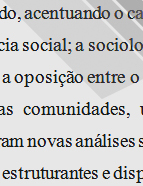

................................
For the most important survey of this historiography, we must obviously begin with Pascoal de Melo Freire (1738-1798), Professor of Domestic Law at the University of Coimbra, author of the first manual of legal history, Historia juris civilis lusitani (written between 1783 and 1789), Institutions of Portuguese Civil Law (both public and private), adopted as a compendium in the FD [?] and whose influence lasted until the mid-19th century. In Book I (titles VII to XV), he invokes the councillors , almotacés , trade companies, the Lisbon Silk Factory, the Covilhã Cloth Factory, the Board of Trade, the Judge of India and Mines, the Overseas Council, the Chief Magistrate, the Ombudsman, the Royal Ombudsman, the General Intendant of the Court and Kingdom Police, the Royal Censorship Board, the chief magistrates, the captain of ordinances, the magistrates, the ombudsmen, the judges, the Military Auditor, and the War Council. Book II (title II) describes the powers of the Desembargo do Paço , the municipalities, ordinary judges, councillors , officials, judges of orphans, and vintena para, while title III discusses the correição , donatários , ouvidores , the Queen’s House, the Royal House of the Infante, the House of the Dukes of Bragança, senior officers ( mordomo -mor, almotacé -mor, aposentador -mor, monteiro -mor) and their powers. When ranking protocol treatments, it lists a series of royal offices in addition to the Greats of the Kingdom, Ecclesiastics, Dukes, Marquises and Counts. This was continued, to some extent, by Francisco Coelho de Sousa Sampaio (17?/1820?) with his Prelecções do Direito Pátrio , Público e Particular (Lectures on Domestic, Public and Private Law, 1793) and, above all, by Coelho da Rocha (1793-1850), a lecturer at the FDUC, with his Ensaio sobre a História do Governo e Legislação de Portugal para servir de Introdução ao Estudo do Direito Pátrio (Essay on the History of the Government and Legislation of Portugal to serve as an Introduction to the Study of Domestic Law, 1841, a manual used until the end of the century) and the Institutions of Portuguese Civil Law, for use by his disciples (1848), in particular the history of entailed estates, bonds, chapels, leases, pious legacies and emphyteusis.
This work is financed by national funds through FCT - Foundation for Science and Technology, I.P, in the scope of the projects UIDB/04311/2020 and UIDP/04311/2020.
